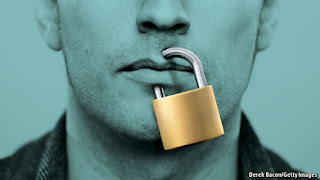Making the Most Out of Other People’s Misery
This is Sam McGlennon. Lets’ face it, he looks like a nice guy: honest, decent, well educated, undoubtedly with good intentions. Maybe that’s how he managed to land the ideal job. He describes himself as a “climate risk and resilience advisor, as well as a sustainable supply chain expert, for NZ businesses and governments”. Sounds very cool, very now. I mean, advising governments, plural. Wow.
Of course this might
not be a real job. I mean, I write stuff, and it’s just possible that people
from businesses and governments read it, so I guess I could say I advise
businesses and governments. But cynicism aside, the best part of Sam’s job, what makes it
ideal, is that he gets to take smug satisfaction out of the misery of millions
of people who have lost their jobs and whose businesses have gone bust. How
cool is that!
You see Sam is a New Zealand greenie, but he represents the views of many environmentalists around the world, which is why
I’m taking a the time to examine what he says. He thinks that the global economic
collapse caused by the current over-reaction by world governments to Covid-19
is a blueprint for tackling climate change. In an article entitled “Let’s never return to normal” Sam says
Covid-19 is slashing global greenhouse gas emissions with a speed and
tenacity that we as a global community have spent 30 years failing to
muster. Now might be a painful moment to admit it – too painful for some – but
that outcome is beyond good; it's necessary. It should come as sweet relief.
He’s right of course. All of those people sacked
from hospitality and airlines jobs around the world will be sitting at home sighing
with sweet relief right now. “Oh, thank God,” they’ll all be saying.
“Greenhouse gas emissions have decreased, so even though my life is ruined, at
least the planet has been saved. It’s beyond
good!”
Sam does reluctantly admit to one down side: physical distancing. “Is the most lamentable part of this experience that we can't hug this one out?” But he thinks Covid-19 has shown us the way of the future, and it has made clear that “we simply don’t have an economy compatible with safe climate”. When we recover we should focus on low-emissions activities, “tending our economy like a garden, allowing activities to regrow with one eye on their emissions and the other on their contribution to the society we wish to live in.” In the meantime, Covid-19 has given us a “once-in-a-generation opportunity for individual and collective reflection on the fundamental shape of our lives and our society”.
So come on people. If you’re in lockdown in your tiny flat or apartment, you shouldn’t be thinking about how your neighbour dobbed you in for walking the dog, or that you probably won’t get your job back, or that you can’t see your boyfriend for months, or that buying food means lining up at the supermarket, or that going for a short drive means you will be stopped by the police to check where you’re going, or that a drone might be scanning you when you walk along the beach. No no no. You shouldn’t be thinking about the extent to which imposing a police state with Stasi tactics has been introduced to prevent the spread of a disease that in many countries is taking fewer lives than the average yearly flu. You should be reflecting, misty-eyed, on the fundamental shape of our lives and our society.
Clearly Sam has been thinking about this already. He prefaces his grand plan with some hesitation about the way in which Covid-19 has crashed world economies: “let's not pretend this virus is a perfect agent of change, even from the limited perspective of the climate.” Not a perfect agent of change. Really? So it’s not perfect, Sam, but it’s pretty damn good. You feel you ought to admit to some tiny niggling doubts that what’s happening around the world isn’t absolutely ideal in your Greta Thunberg-inspired universe? What a great guy you are.
But, OK, the change has happened, economies have been
destroyed, the board has been swept clean and we can rebuild. What’s the
economic plan, Sam? And here Sam has some truly, fundamentally disastrous ideas.
Let’s go through them one by one.
Could we start a thriving rooftop or community solar industry?
No. Not if we wanted to kick-start the economy. Brutal experience throughout the world over the last 20 years has shown that solar energy must be heavily subsidised by governments in order to be viable. Like the electric car plugged in at the supermarket, it is the virtue signalling of those made rich by the use of fossil fuels.
Or activate a paid army of native bush 'regeners' to start rehabilitating our whenua [the New Zealand Maori word for land]?
No. This would use money. It is not a way to kick-start the economy.
Or advance our ambitious pest-free agenda?
No. This would use money. It is not a way to kick-start the economy.
Could we draw on some of the most promising ideas available before the crisis, for example by experimenting with a Universal Basic Income?
No. This would use money. It is not a way to kick-start the economy.
Or is this the perfect time to transition to a four-day week, with a day each fortnight spent contributing to local community projects?
No. This would use money. It is not a way to kick-start the economy.
How about a Just Transition to help farmers exit with dignity from an overcapitalised and highly vulnnerable dairy industry?
No. This would use money. It is not a way to kick start the economy. Has Sam ever met a farmer? If so he would know there is no dignity in being shunted off your land and out of your livelihood. The industry’s vulnerability derives from globalisation. And what this pandemic has shown us is that producing food is a far safer bet than relying on tourism, which Sam completely fails to address. Tourism uses massive amounts of fossil fuels, it is a perfect vector for disease, and it encourages a vulnerable service economy – as we are seeing. If more people were currently involved in farming, there would be far less economic impact of the pandemic. But of course greenies hate farmers.
All of these ideas are the playthings of the Left, busily tapping away on their phones and laptops, immersed in an economy that is based on all the things they despise. Sam’s plans, like the plans of all greenies, amount to a guarantee of poverty and social chaos. He says, “We have the ability to reimagine our future economy … Much of this thinking needs to orient specifically around the climate.” Like the Left throughout history, from Stalin to Mao to Pol Pot to Extinction Rebellion, Sam is desperately keen to sacrifice any number of lives to achieve the one Big Idea.
David Wolcott



Great article. Funny, savage and a pleasure to read.
ReplyDeleteGood one, David. These terribly nice people are actually evil, and I use that word very thoughtfully.
ReplyDeleteYou've hit the nail on the head in terms of what is wrong with Big Green and Greta Thunberg, not to mention all the Guardian readers who hang on to her every word and accept her verbal lashing like a sad bastard visiting a dominatrix.
ReplyDelete